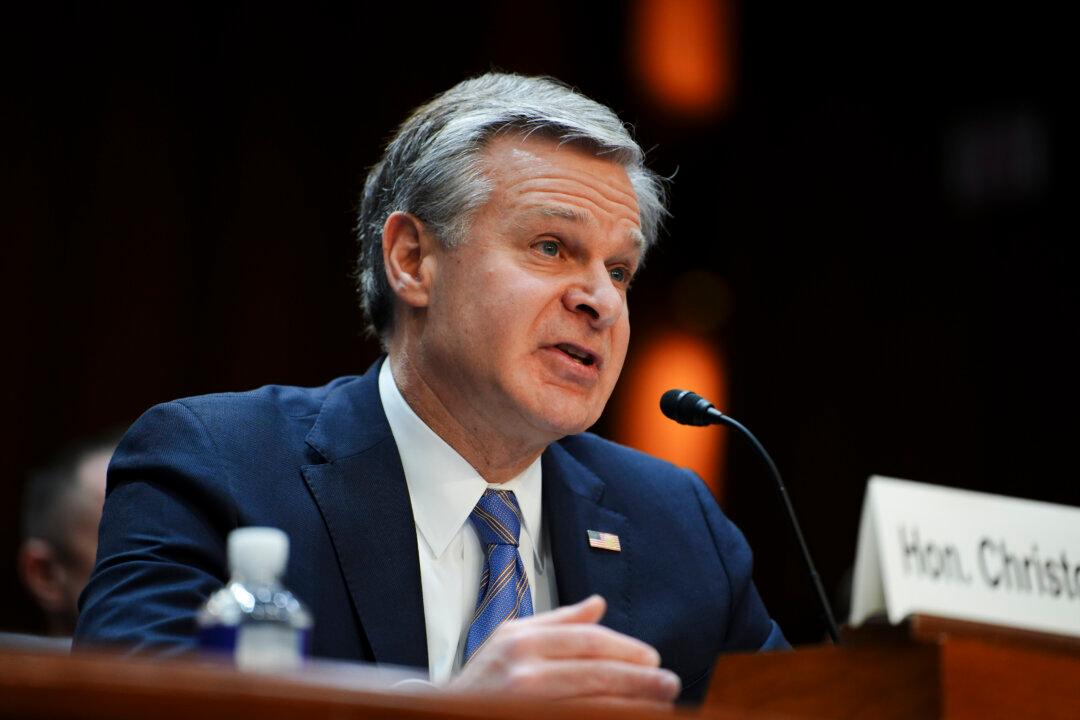FBI Director Christopher Wray infuriated Republican senators on Dec. 5 as he repeatedly evaded their questions on the FBI’s handling of internal investigations of President Joe Biden and his son, Hunter.
At a Senate Judiciary Committee hearing, the director was peppered with questions about how those investigations were conducted and whether politics had influenced the process.





